
Cultura RM / Alamy Stock Photo
Submissions to a three-month consultation by the General Pharmaceutical Council (GPhC) on its proposals for the revalidation of pharmacy professionals, which closed on 17 July, show that while pharmacy organisations overwhelmingly support the concept of revalidation, they have some concerns about the proposals that have been put forward[1]
.
Most of the issues raised relate to the new elements of peer discussion and reflective account and the fact that it is a one-size-fits-all model. They also question whether the number of CPD elements that must be completed each year has been slimmed down too much and the process made too flexible.
However, they do concede that many of the issues they have raised may be settled when the GPhC publishes its final plans in more detail, which is expected to be before the end of this year.
Revalidation is intended to assure members of the public that the trust they have in pharmacy professionals is well placed and has been designed to work for all pharmacy professionals, pharmacists and pharmacy technicians, no matter what their sector or role. The GPhC’s proposals, published on 24 April, have been three years in development and piloted with more than 1,300 volunteers[2]
.
A white paper, Trust, Assurance and Safety— The Regulation of Health Professionals in the 21st Century, published by the Department of Health in 2007, proposed that all registered healthcare professionals should be required to demonstrate their continuing competence and fitness to practise at intervals throughout their professional careers[3]
.
It came in the wake of the Shipman Inquiry, chaired by Dame Janet Smith, which investigated the murderous activities of general practitioner and serial killer Harold Shipman.
Shipman was convicted of 15 murders, but the inquiry revealed he had probably committed as many as 250 in total. The final report from the inquiry was published in January 2005.
Bringing pharmacists in line with other professions
Since then, regulatory bodies within the healthcare industry have been developing their own individual revalidation models. The proposed new system for pharmacists would bring the profession more in line with doctors, nurses and midwives, for whom revalidation has been introduced over the last five years.
For doctors, revalidation was introduced by the General Medical Council (GMC) in December 2012. It requires all licensed doctors to demonstrate on a regular basis that they are up to date, fit to practise in their chosen field and able to provide a good level of care.
Licensed doctors have to revalidate every five years and revalidation is built into the annual appraisal process (a local evaluation of their practice).
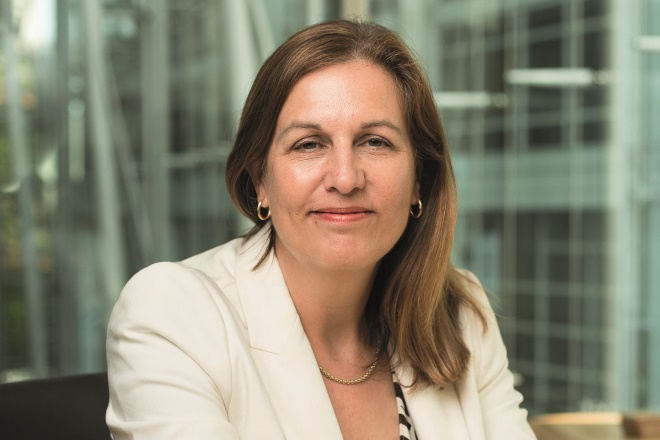
Source: General Medical Council (GMC)
Susan Goldsmith, chief operating officer and deputy chief executive of the General Medical Council, says that in England, 40% of doctors worked without appraisals, but this went down to just 5% a year after revalidation began
According to Susan Goldsmith, chief operating officer and deputy chief executive of the GMC, before revalidation was introduced many organisations did not have systems in place to monitor how well or badly their doctors were practising.
In England, 40% of doctors worked without [appraisals], but this went down to just 5% a little over a year after revalidation began
“For example in England, 40% of doctors worked without such checks, but this went down to just 5% a little over a year after revalidation began,” she explained.
In January 2017, an independent review of the impact of revalidation was carried out by Sir Keith Pearson, chairman of Health Education England. His overall conclusion was that revalidation had settled well and progressed as expected. In terms of benefits, he said that revalidation had so far helped to ensure that annual appraisal takes place and had strengthened clinical governance within healthcare organisations. However, on listening to concerns from some doctors that revalidation is “unnecessarily burdensome” and provides no benefit, Pearson concluded that more could be done locally to support doctors to meet the requirements while maintaining a focus on personal development.
The GMC has established a Revalidation Oversight Group to oversee the progress and delivery of its ‘Taking revalidation forward’ action plan.
Revalidation for nurses and midwives was launched in April 2016 as a successor to the previous process of post-registration education and practice (Prep). All 690,000 nurses and midwives registered with the Nurse and Midwifery Council (NMC) are required to revalidate every three years following their initial registration in order to demonstrate that they are practising safely and effectively in line with The Code for nurses and midwives, which was made effective from 31 March 2015.
Revalidation for nurses and midwives is made up of eight elements including CPD, a reflective account and discussion and practice-related feedback.
An independent Ipsos MORI evaluation, commissioned by the NMC in March 2016 and published in July 2017, concluded that implementation of revalidation had progressed largely as expected with no major problems or delays. In the first year, 200,000 nurses and midwives completed revalidation with the NMC and 92% of those due to revalidate, did so successfully.
However, the report said it was crucial that revalidation was not treated as ‘business as usual’ as many had not yet gone through the process, so there needed to be continued support and communication for the remainder of the roll-out period.
Those who had undertaken revalidation, the report said, had been very positive about the experience but those who were yet to go through it felt a level of apprehension about the process and what was expected of them. To address this, the NMC has built a revalidation microsite so nurses and midwives have a one-stop shop with everything they need to know about the process.
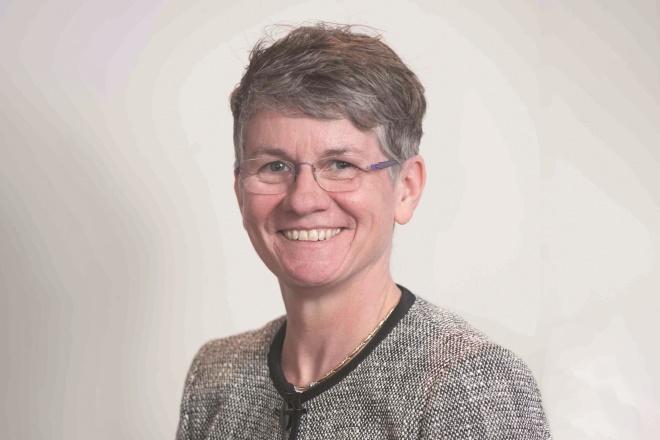
Source: Nurse and Midwifery Council (NMC)
Jackie Smith, Nurse and Midwifery Council (NMC) chief executive and registrar says she is delighted that feedback from the first year shows revalidation having a positive impact on the practice of nurses and midwives and contributing to a change in behaviour
Jackie Smith, NMC chief executive and registrar, said: “When we launched revalidation in April 2016, it represented one of the most significant changes to nursing and midwifery in a generation. But we knew that it would only be successful if it was a process that worked for nurses and midwives.
Feedback from the first year shows that revalidation may be having a positive impact on the practice of nurses and midwives and contributing to a change in behaviour
“I am delighted that feedback received during the first year shows that revalidation may be having a positive impact on the practice of nurses and midwives as well as contributing to a change in behaviour.”
She said early evidence suggested that revalidation was likely to contribute to bringing about a culture of reflection, sharing and good practice while also bring the NMC Code of Practice to life for many.
GPhC met doctor and nurse bodies
The GPhC met regularly with GMC and NMC representatives throughout the development of its new proposals to discuss progress and ongoing evaluations of their respective revalidation programmes.
The new system as it stands will see the number of required CPD records cut from nine to four.
“We’ve also simplified the recording requirements so that a system of reflection can be built into the model,” explains Os Ammar, head of continuing fitness to practise at the GPhC.
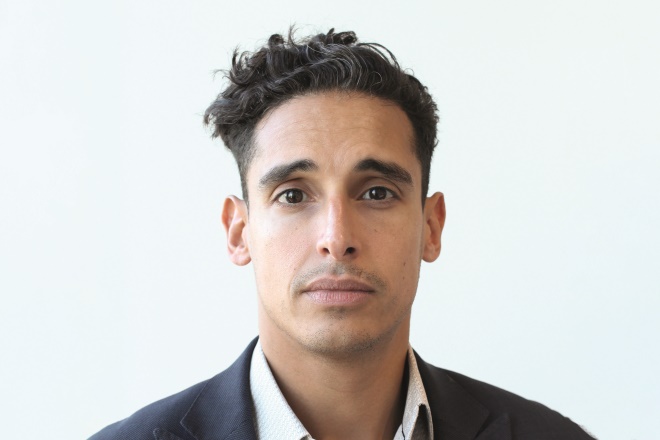
Source: General Pharmaceutical Council (GPhC)
Os Ammar, head of continuing fitness to practise at the GPhC, says the organisation has simplified the recording requirements
“Registrants will simply have to fill in two or three boxes on the learning activity and the benefits it will have for people using the pharmacy profession’s services, and record whether the learning was planned or unplanned.”
An example of planned learning would be enrolling on a course on a specific topic that the pharmacy professional came across, and an example of unplanned learning would be recognising they lacked knowledge on a specific topic, and reading around the subject area and seeking out further training.
Reducing the amount of work required for CPD has created space for two new activities — a reflective account detailing how they meet one or more of the standards for pharmacy professionals
[4]
using examples from their practice and a peer discussion.
Written reflections
For the reflective account registrants are required to submit a piece of written work outlining how they have taken account of one of the GPhC’s standards as part of their practice and how this had a positive impact for patient care. The aim, Ammar explains, is to make registrants think about the standards for pharmacy professionals on a more regular basis, “so that potentially they become part of the hearts and minds of our registrants”, rather than something just considered as part of the assessment processes.
“[The activity] may not necessarily lead to a measurable improvement,” he acknowledges. “What we’re asking people to do is to use a real example from practice considering one of the nine GPhC standards.
He explained that when the process was piloted, volunteers were asked to reflect on the communications standard. For example, someone who comes into a community pharmacy may have some kind of need for another community service, and the pharmacy professional would need to explain how they considered the patient, decided what needed to be done and how they communicated that information to the patient and any other actions they took. While for a community pharmacist the end service user will probably be a patient, for some pharmacy professionals it may be a colleague, for trainers it could be a student and in the case of those working in public health an entire population.
Acknowledging that reflective accounts are very different to the types of activities that pharmacy professionals are used to completing, the GPhC plans to provide further guidance and make examples available to illustrate how they will work for different pharmacy roles.
For the peer discussion, the pharmacy professional will have to identify a colleague with whom to speak about their practice and record the benefit it has for the people using their services. This conversation could be in person, over the phone or via Skype.
The GPhC says it wants the relationship to be “trusted, respected, open and honest, and feel like a ‘safe space’ where learning can arise from things that have gone well and not so well”.
The same peer can be used repeatedly, and if a pharmacist is selected for review, details of what was discussed will not have to be disclosed.
Feedback from piloting suggests the peer discussion is “the most powerful of the new things that we are asking to be done”
Feedback from piloting suggests the peer discussion is “the most powerful of the new things that we are asking to be done”, Ammar says.
The peer does not necessarily have to be a pharmacist, Ammar emphasises. “In our development programme we explored many options about whether we needed to put any restrictions on choosing a peer and all of the evidence in testing and piloting, but also from what other professionals do, suggests that actually it is more sensible for us to leave the requirement fairly open and allow people to select the most appropriate peer for them.
“What we’re seeing now is that largely pharmacists and pharmacy technicians seek out, for the most part, other pharmacists and pharmacy technicians,” he says. “For people who don’t maybe have frontline service roles any more, it may not be appropriate for them to find a peer who is a pharmacist or pharmacy technician. They may gain more benefit from finding another senior leader or another academic to be their peer to help them reflect.”
We have some concerns that the current proposals for peer discussion may become a ‘box-ticking’ exercise
In its response to the GPhC consultation, the RPS said that while it supported revalidation, it had concerns about the lack of detail in the GPhC’s proposals, particularly for peer discussion. Catherine Duggan, director of professional development and support at the Royal Pharmaceutical Society, says: “We have some concerns that the current proposals for peer discussion may become a ‘box-ticking’ exercise,” she says, “we would need to see the detail behind this, for example, will reviewers be trained and how will the process be quality assured?”

Source: Simon Wright Photography / The Pharmaceutical Journal
Catherine Duggan, director of professional development and support at the Royal Pharmaceutical Society, says the RPS has concerns that the current proposals for peer discussion may become a ‘box-ticking’ exercise
A spokeswoman for the GPhC says that a number of frequently asked questions had been produced to accompany the launch of the consultation[5]
and if Council agreed to the proposals, further support would follow. “We anticipate producing further guidance to support registrants and their prospective peers, plus further supporting material relating to reflective accounts,” she says.
Helga Mangion, policy manager at the National Pharmacy Association, says peer discussion is “the element that is perhaps the most unfamiliar in pharmacist regulation,” but admits, “this could be a useful innovation that encourages the registrant to get a three-dimensional view of their practice.”

Source: National Pharmacy Association (NPA)
Helga Mangion, policy manager at the National Pharmacy Association, says peer discussion is the most unfamiliar element in pharmacist regulation
“Peer discussion can be an incredibly useful and supportive process,” Duggan agrees. “However, the current proposal seems to suggest that a chat with someone in an unstructured way would meet the requirements,” she adds, so there needs to be professional standards and frameworks in place to ensure this element of revalidation genuinely supports patient safety and confidence in the profession.
The Pharmacy Defence Association also believes that there should be “more stringent controls in relation to who may act as a peer for the peer discussion. For example, [the GPhC] may specify that the individual must have been qualified as a pharmacist for five years and have worked for at least two years in the same area of practice as the registrant.”
The PDA is probably the organisation that has been most critical of the proposals. In its response to the consultation,[6]
it was particularly critical of the one-size fits all approach for all types of registrants. It says “The GPhC’s approach in proposing the same framework for pharmacists and pharmacy technicians does not take in to account the practical and operational differences between the profession and the occupational group, such as the nature of the roles undertaken and the public expectations of each. We are concerned that this approach may have arisen for reasons of expediency, not of principle.” It adds: “The GPhC should develop and consult upon a separate revalidation framework for chief pharmacists, superintendent pharmacists and pharmacy owners, to assess whether or not they are (and remain) fit and proper persons to hold their positions of responsibility.”
The PDA adds that the proposals do not meet the accepted definition of revalidation and so should continue to be known as “continuing professional development” (CPD). “The framework and process do not constitute revalidation or an assessment of fitness to practise; they do not include any formal appraisal, by a senior pharmacist, of a registrant’s practice, will not detect impaired performance at an early stage and are otherwise not sufficiently rigorous,” it says in its consultation response.
Peer discussion will be formalised
Christopher Cutts, professor of professional development and practice and director of the Centre for Pharmacy Postgraduate Education (CPPE), was part of the working group involved with testing and evaluating the proposals. He expects the new elements are just a starting point and will be built on over the next 5 to 10 years with the peer discussion more formalised and expanded to more than one person, more work to do for the reflective piece, and hopefully, eventually, a form of appraisal.
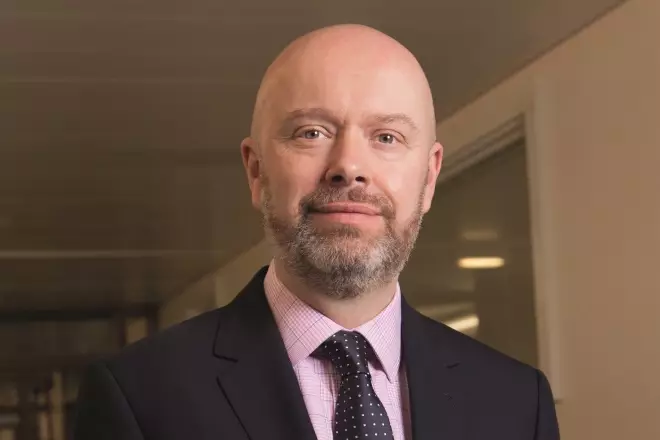
Source: Courtesy of Christopher Cutts
Christopher Cutts, professor of professional development and practice and director of the Centre for Pharmacy Postgraduate Education, says the CPPE will facilitate events that enable peer discussions to happen
“Current models, particularly in the world of community pharmacy where people have non-pharmacy managers, would not be appropriate, but I think an appropriate appraisal with a person who understands your job, who can guide and steer you to do the best that you can would be a key part. But the infrastructure is not there at the moment, particularly in community,” he says.
GPs could do pharmacists’ appraisals, community pharmacists could do it and you could probably get it off the ground in hospitals quite easily
“But as pharmacists start working in general practice, GPs could do pharmacists’ appraisals, community pharmacists could do it and you could probably get it off the ground in hospitals quite easily.” Health Education England would have a key role in that development, he suggests.
Many pharmacists complain of professional isolation and while mandating an annual peer discussion was not going to tackle it overnight, it is a start, he says.
Cutts expects the CPPE will facilitate events that enable peer discussions to happen, such as workshops that give attendees time and space to have the conversation, and has no doubts that other organisations and employers will also engage.
Employers, he expects, will support revalidation in a way beneficial to their organisation, such as enabling registrants to share what they have done with others rather than providing protected time for peer discussion or to write a reflective account.
Marc Donovan, chief pharmacist at Boots UK, says: Boots UK pharmacy colleagues are encouraged through CPD to learn with their peers and they have access to our wide variety of training programmes and events, such as our ‘Let’s Connect’ programme, as well as collaborations with professional bodies. All our training interventions will reflect the new revalidation requirements and will develop pharmacy professionals in all of the settings in which they operate.”
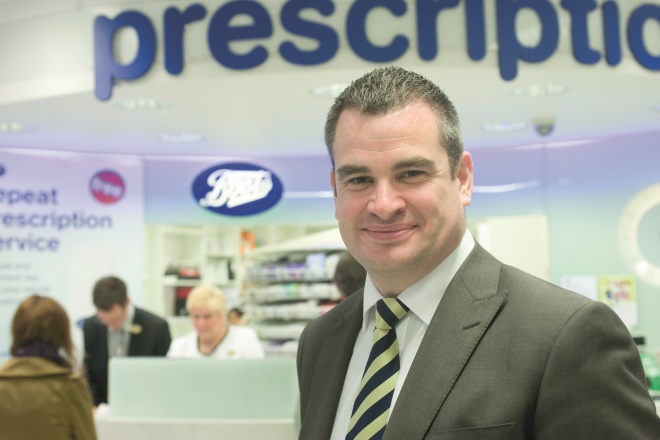
Source: Boots UK
Marc Donovan, chief pharmacist at Boots UK, says the company’s training interventions will reflect the new revalidation requirements
He adds: “The new focus on demonstrating improvements that have actually benefited users of pharmacy services, and the introduction of peer discussions and reflective accounts will be advantageous to all pharmacy professionals.”
Martin Bennett, managing director/superintendent pharmacist at Wicker Pharmacy, says: “Given that regulators seem to be expected to raise the bar, the proposals appear far better than the option of ongoing exams or assessments and perhaps need to be judged against this. “Personally, I’m not keen on peer discussion but I’m not a great fan of recording CPD (as opposed to doing it) but I’ve learnt to live with it.”
He adds that his pharmacy “will be looking at how best we can help organise the peer discussion requirement, although I believe that revalidation is, in the main, down to the registrant and we will all need to work out our own way of complying.”

Source: Wicker Pharmacy
Martin Bennett, managing director/superintendent pharmacist at Wicker Pharmacy, says the proposals appear far better than the option of ongoing exams or assessments
A spokeswoman for Celesio UK, which runs Lloyds Pharmacy, says: “Celesio UK is supportive of the proposed framework for registered pharmacy professionals. We are currently reviewing what support our colleagues will require from us.”
Records will be submitted every year
Records of all activities will have to be submitted every year at the same time that pharmacy professionals make their declarations for renewal of registration. There is an emphasis on annual recording because with the current CPD system, which works on a five-year cycle, there is a perception among some pharmacy professionals that they only need to record CPD activities when they are called to submit them to the GPhC, Ammar says, while they should be recording them continuously. As a result, last year the GPhC consulted on moving towards a sampling approach to calling records, which means that people are less certain about when they will be called upon.
The GPhC is also considering making changes to the way that registrants’ submissions are selected for close analysis. Some registrants would be selected at random, but the GPhC would also make a targeted selection.
Having trouble meeting the requirements for CPD or revalidation, and late submission are an indicator that someone may need a bit more scrutiny
“The two criteria that we are planning on using at the moment for targeted selection are previous history of having trouble meeting the requirements for CPD or revalidation, but also late submission because essentially it’s an indicator to us that someone may need a little bit more scrutiny in their records,” Ammar explains.
The GPhC is also proposing changes to the review process itself. Review criteria will be split into core and feedback criteria. Failure to meet the core criteria, such as submitting insufficient CPD entries or breaching confidentially will lead to remediation, including potentially removal from the register, whereas feedback criteria aim to improve recording of entries.
Under CPD, one reviewer assesses records, but now the GPhC is proposing two reviewers in tandem — a pharmacist or pharmacy technician, according to which part of the register the registrant is on, plus a lay reviewer.
“That will mean that they can look and actually assess the quality of the record in both pharmacy practice or science terms and medicines use terms as well as assessing if they have taken the right approach to recording CPD,” Cutts says. Currently, he adds, “People feel they get marked on how they have written it rather than what they’ve written, and it should be both.
Implementation of revalidation is due to start in 2018. However, the GPhC does not plan to start to review revised CPD records submitted under the new system until 2019, and records for the new peer discussion and reflective account elements will not be reviewed until 2020.
A pharmacist’s experience of the revalidation proposals
Bob Dunkley, a semi-retired community pharmacist in Bradford, Yorkshire, was one of the pharmacists who agreed to try out the proposed new revalidation process as part of the GPhC’s pilot.
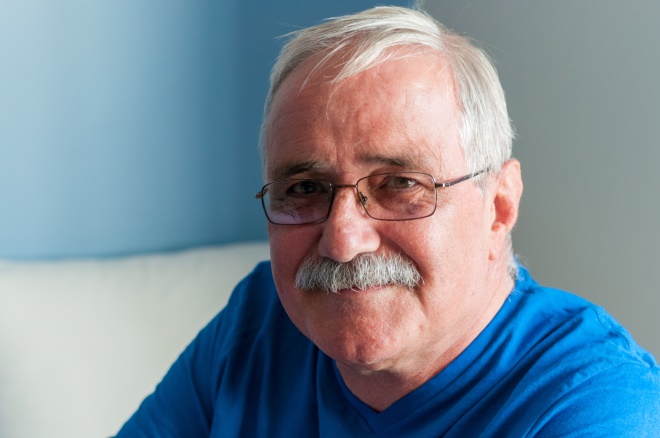
Source: Charles Dunkley
Bob Dunkley, a semi-retired community pharmacist in Bradford, Yorkshire, agreed to try out the proposed new revalidation process as part of the GPhC’s pilot
One of his interests is correct use of inhalers, so he chose this as the topic for his reflective account. He used patient records to identify patients getting through reliever inhalers too quickly, asked them to demonstrate how they used the inhaler and then showed them the correct technique and explained any changes they needed to make in order to perfect their technique.
“The peer discussion was the most difficult piece of work of the lot, because you have to find a peer. For any other profession that’s probably easy, but pharmacy is a notoriously lonely profession — unless you are involved in the work of the local branch or you go to courses, you never see another pharmacist from one weekend to the next,” he says.
“I can see for a newly qualified pharmacist or a pharmacist who does not get out into the pharmaceutical community, they are going to find it very, very difficult.”
His local practice forum in Doncaster has recognised this, Dunkley says, so decided that it will set up a bank of peers willing to be available if required.
Dunkley asked a pharmacist that he knows from the forum whether she would act as his peer, and they went out for a meal and had the discussion over dinner.
They discussed his idea for promoting the correct use of inhalers that Dunkley was planning to undertake for his reflective account and she came up with some useful suggestions.
“You are talking with a peer who can say have you tried this,” Dunkley explains. “Otherwise you’re on your own and you are thinking should I try this, but you could end up in hot water very quickly, but when you’ve got somebody else to bounce it off, it is so much better.”
Dunkley says that before the dinner he prepared a few notes setting out what he wanted to discuss. “The key to this is preparation. I realise this and I know quite a lot about it but if I didn’t write down the things that I wanted to discuss, then we wouldn’t get anything out of it.”
Dunkley says that with the current system, it is “a great fag to fill in” and time-consuming. “This is much better”. “Rather than sitting ticking boxes and providing a couple of sentences, you have to write a couple of paragraphs and it concentrates the mind wonderfully.”
“Pharmacy is a very lonely profession and you have to make efforts to meet all the pharmacists and to talk to other pharmacists,” Dunkley emphasises, and the proposed system “whatever other faults it’s got, it does encourage pharmacists to meet”.
With additional reporting by Julia Robinson.
- This article was amended on 21 August 2017 to clarify the term ‘peer discussion’.
References
[1] Robinson J. Pharmacy bodies express concerns over GPhC revalidation proposals. Pharm J 2017. doi: 10.1211/PJ.2017.20203198
[2] General Pharmaceutical Council. Consultation on revalidation for pharmacy professionals. 2017. Available at: https://www.pharmacyregulation.org/revalidationconsultation (accessed August 2017)
[3] Department of Health. Trust, assurance and safety: the regulation of health professionals in the 21st century. 2007. Available at: https://www.gov.uk/government/publications/trust-assurance-and-safety-the-regulation-of-health-professionals-in-the-21st-century (accessed August 2017)
[4] General Pharmaceutical Council. Standards for pharmacy professionals. 2017. Available at:https://www.pharmacyregulation.org/sites/default/files/standards_for_pharmacy_professionals_may_2017_0.pdf (accessed August 2017)
[5] General Pharmaceutical Council. Revalidation for pharmacy professionals frequently asked questions. 2017. Available at: www.pharmacyregulation.org/revalidation-pharmacy-professionals-frequently-asked-questions (accessed August 2017)
[6] Pharmacists’ Defence Association. Response to the General Pharmaceutical Council’s Consultation on Revalidation for Pharmacy Professionals. 2017. Available at: https://www.the-pda.org/wp-content/uploads/GPhC-Revalidation-Consultation-Response.pdf (accessed August 2017)


